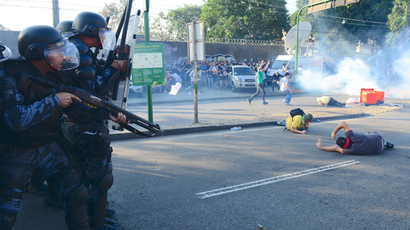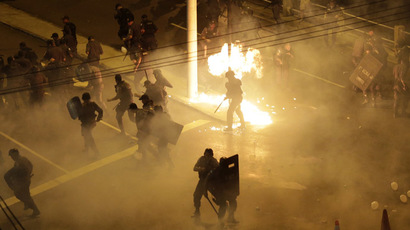Brazilian World Cup builders call for national strike as construction death toll rises
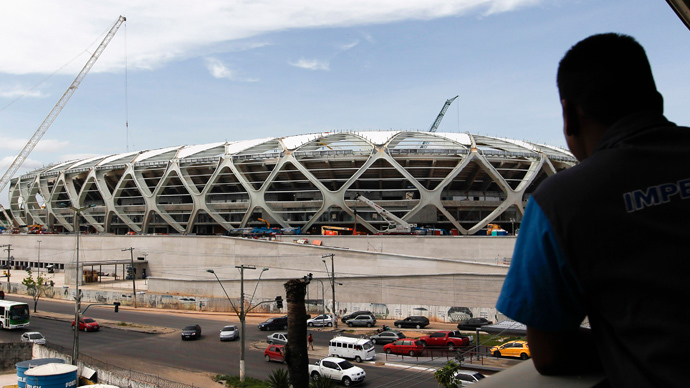
Brazil’s troubled World Cup 2014 preparations may take another blow as a construction workers’ union slammed safety conditions at WC venues and called for a nationwide strike, following two more lethal incidents on Saturday.
Both fatalities occurred at the Arena Amazonia stadium in the city of Manaus, the capital of the state of Amazonas, which is scheduled to host four group stage matches during next year’s event.
“A general strike would be ideal, to show the reality that nobody wants to see,” Amazonia Construction Union president, Cicero Custodio, is cited as saying by Globoesporte. “The government only shows the pretty part of the works and forgets who’s there making them happen. This Monday we will be there, demanding our rights as workers and exposing this reality.”
A construction worker, identified as 23-year-old Jose Antonio da Silva Nascimento, was found dead in a convention center inside the arena’s compound after suffering a heart attack.
Earlier on Saturday, another builder, Marcleudo de Melo Ferreira, had fallen 35 meters from the roof of the stadium after a cable snapped.
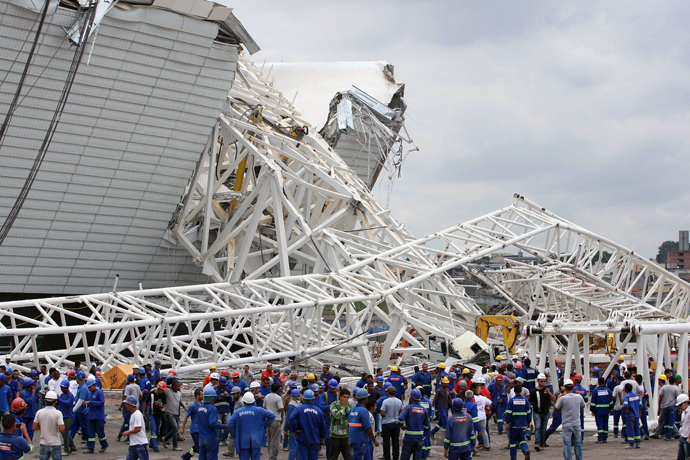
The 22-year-old later died of his injuries in hospital. Work on high areas at the $262 million Arena Amazonia is currently suspended.
“The [cable] accident happened because there wasn't a safety technician on site,” Custodio said. “The Labor Ministry has to get off their chairs and audit the works, even when there are people working at night.”
These latest incidents bring the death toll at the Arena Amazonia construction to three. Also, two more workers lost their lives after a crane collapsed onto the roof of the Corinthians Arena in Sao Paulo this November.
Another man was killed working on the Palmeiras arena in Sao Paulo, which won’t host any World Cup matches, but could be used as an official training base by one of the teams.
Following the November tragedy, FIFA stated that “the safety of workers is the top priority” for football’s governing body as well as the organizers.
But the families of the two men, who died at Arena Amazonia on Saturday, told the Brazilian media that the builders had to work seven days a week to ensure the construction of the new stadium in Manaus would meet FIFA’s January-15 deadline.
Work at the stadium has been stepped up recently to 20 hours a day, with builders forced to operate in three shifts.
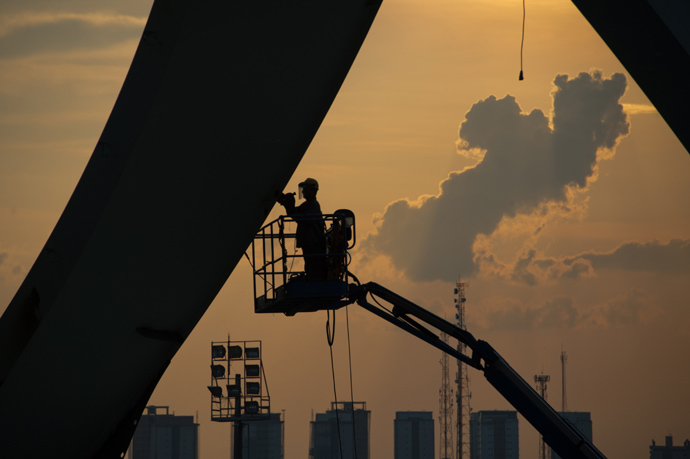
“The stadium will be ready in time and we will not let FIFA
or anyone else down,” Miguel Capobiango, the co-coordinator
for UGP Copa, the umbrella co-ordination organization for all
World Cup projects in Manaus, told Reuters on Wednesday.
According to the Arena Amazonia’s website, work at the site was
92 percent complete as of December 2.
Meanwhile, the strike is already underway at Arena da Baixada in
Curitiba, the capital of the state of Paraná, scheduled to host
four World Cup matches, including Russia’s Group H encounter with
Algeria.
Over 250 out of 12,000 builders, occupied in construction,
refused to work on Tuesday, demanding salary owing for November.
On Friday, they were joined by 50 more of their colleagues in a
demonstration, which saw streets around the stadium closed.
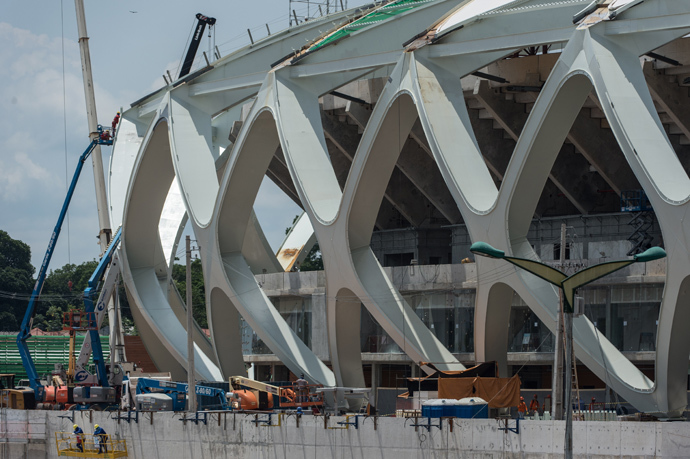
Mauro Holzmann, the executive marketing director of Atletico Paranaense football club, who will play at the stadium after the World Cup, promised that the strike will be over by Monday.
“It was a small problem, a misunderstanding and it won't happen again,” he said. “We had trouble getting access to government funds to pay the workers. Put it down to Brazilian bureaucracy.”
However, the local workers’ union said it was considering calling for a separate strike on Monday to protest about working conditions.
The Brazilin authorities are facing a race against time to make sure 12 stadiums and infrastructure across the country are ready to support the World Cup, following delays in construction, increased costs and nationwide protests against the event.
Thirty-two of the world’s top football teams are expected to arrive in Brazil next summer to take part in the tournament, which opens on June 12 and concludes with the final on July 13.













